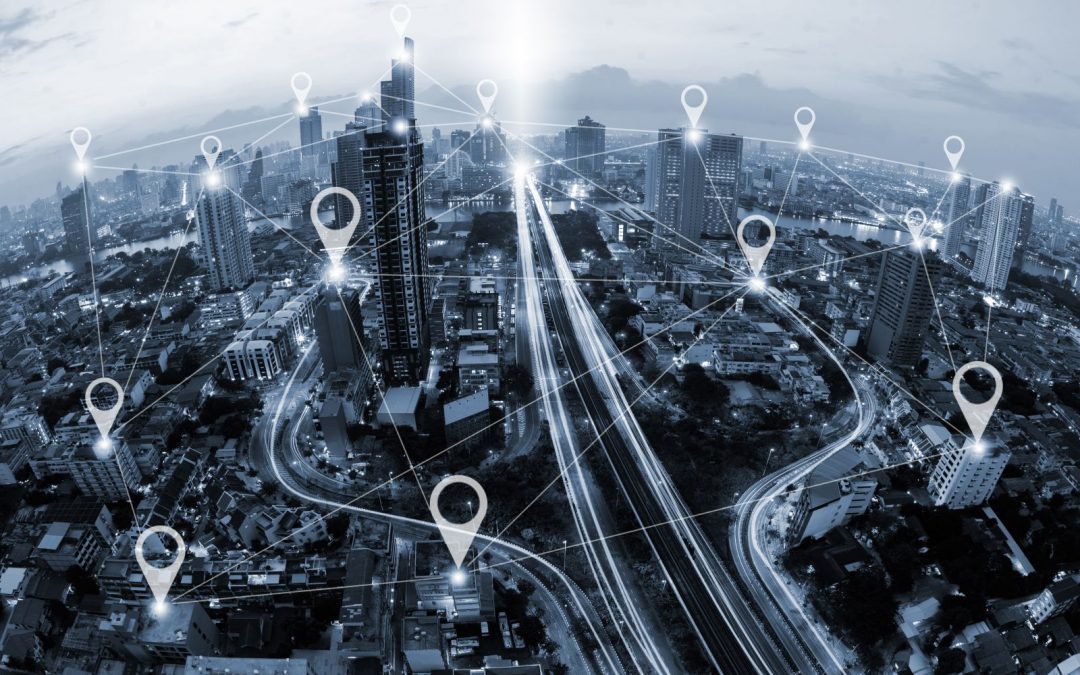The realm of search engine optimization (SEO) isn’t static. It has always been a dynamic landscape, continuously shaped and reshaped by evolving trends, technological advancements, and shifts in user behavior.
However, we are currently witnessing more than a typical evolution.
Today, we stand on the cusp of a paradigm shift. And the driving force behind this transformation is the growing synergy between artificial intelligence (AI) and SEO. As these two innovative forces converge and coalesce, they’re reshaping the contours of the search engine optimization or SEO industry, changing how a search engine operates and how businesses can optimize their digital presence.
Given these rapid, ongoing developments, it’s natural for brands and marketers to feel a degree of uncertainty about the future of SEO. Yet, amidst these changes lie opportunities to create a competitive advantage for forward-thinking brands.
This article aims to explore this transformation, outlining what to expect and offering guidance on how to navigate this exciting new SEO era.
5 Trends of AI and SEO
In the brief span of a few short years, AI has made its presence felt in a major way. Some integrations are subtle, whereas others have become household names.
Here are the major ongoing trends in SEO and AI today:
#1 AI-Powered Search Algorithms: An Evolution in Accuracy
Historically, search engine algorithms have been incredibly complex systems, meticulously crawling and indexing web pages to then rank them according to relevance, accuracy, and authority.
But AI’s gradual integration with search algorithms has dramatically enhanced the algorithm’s abilities to understand and interpret user queries, resulting in more accurate search results.
For instance, as Forbes points out, Google’s RankBrain—which is powered by machine learning programs—is a prominent example of AI’s impact on search algorithms.1
RankBrain analyzes user interactions with search results to learn and refine its results over time. This AI-powered program empowers Google to better understand the context of any given query and match it with the most relevant web pages.
And this is just one of the myriad ways AI is impacting search. As these technologies continue to evolve apace, search engines will also likely embrace AI (if they haven’t already) to better understand user queries and results with more topical relevance.
#2 Revolutionizing Keyword Research and Content Optimization
Historically, keyword research was a challenging and time-consuming SEO workflow.
The digital marketing agency or marketer needed to analyze keywords and phrases, judge their relevance and potential impact, and consider the relationships between these words and user intent to generate relevant marketing insights. Similarly, content optimization required that marketing teams or brands find the balance between user engagement and SEO performance.
But the rise of AI in SEO has revolutionized keyword research. As Search Engine Land notes:2
“[Keyword research] has always been a time-consuming and tedious task, but AI tools have made it much easier. AI-based keyword capabilities like SEO Vendor’s AI Analysis assist in analyzing anchor text usage, keyword variations and semantic keywords.”
With AI involved, there’s less guesswork. These tools make it easier to ensure that content is relevant and engaging. In that regard, some of AI’s more promising capabilities include:
- Predict user behavior and search trends.
- Analyze user behavior data.
- Determine the type of content that performs best.
- Make strategic recommendations for content optimization.
- Generate meta tags, headings, and other on-page elements.
This new edge provided by AI doesn’t just make keyword research and content optimization faster and easier—it also guarantees that each piece of SEO content strikes a harmonious balance between addressing the needs of the target audience and optimizing for web search indexes.
#3 Voice Search’s Growing Popularity
The advent of voice assistants like Amazon’s Alexa, Apple’s Siri, Microsoft’s Cortana, and Google Assistant has catalyzed an explosive rise in voice search queries. This trend is particularly prevalent among older demographics who prefer the hands-free, conversational nature of voice search.
This has led to a significant shift in user behavior. In fact, approximately 50% of the US population will use voice search features daily, with a sizable portion preferring to voice their queries rather than type them, especially for local searches.3 As such, search engines have increasingly prioritized high quality content that’s optimized for voice search.
And these AI-powered technologies have only become more powerful and ubiquitous over time, refining how users interact with search technology. They’re now better able to understand:
- What’s been previously said/searched for.
- Context based on location.
- App-based context.
- Contextual factors.
- Semantic factors.
- Context based on user.
#4 Visual Search
Visual search is another area of SEO that was once niche but will continue to grow thanks to the integration of AI into search algorithms and IoT devices. In recent years, Google has dramatically improved its visual capabilities, largely due to AI advancements in machine perception.
Now, search algorithms can better understand images and other types of multimedia. Google Lens, in particular, has exploded in popularity. This visual search tool leverages AI to identify real-world objects or translate text in an image in real time. Consumers can use the camera on their phone or upload an image to search for a product or place.
And in 2022, Google introduced Multisearch—a new type of search that allows users to use both texts and images simultaneously. According to Search Engine Journal:4
“This tool is designed to be used for searches that aren’t as straightforward as a singular image or textual phrase. If you want to find out more about an object in front of you, but you don’t have all the words to describe what you’re looking for, that’s where Multisearch comes in. With multisearch in Lens you can ask Google questions about what you see.”
#5 The Rise of Natural Language Processing Bots
In the fall of 2022, ChatGPT took the world by storm. The natural language processing (NLP) chatbot tool gained 100 million monthly active users just two months after launch, making it the fastest-growing consumer application in history.5
Although it remains unclear just how large an impact the emergence of chatbots will have on SEO generally, we have already witnessed significant shifts in the short time since their introduction:
Content Creation
Many marketers and brands immediately realized that ChatGPT could help simplify and expedite content creation, especially short-form content like social media and emails.
But this ease of content generation is a double-edged sword. The quality of AI-generated content simply can’t compare to a piece written by a subject-matter expert. So, the natural result of this has been a flood of pieces that’s either entirely or partly AI-generated content, which will inevitably decrease content quality on a macro scale.
In response, the SEO algorithm will likely be fine-tuned to further prioritize high-quality, human-generated content.
Shifting User Search Behavior
Although the dust has yet to settle, there’s already been a marked shift in how users search for information, with traditional search engines experiencing a notable drop-off in search volumes.
Many users have already demonstrated a preference for interacting with chatbots for queries rather than conducting a normal search due to their conversational nature and personalized responses.
For example, in many cases, it’s much easier for users to simply ask a question and receive a response via chatbot than to search on Google, find a page, and then parse 1,500 words of content to find the answer to their query.
Adapting Search Algorithms
While chatbots are eating into some slice of the SEO pie, as of now, they’re incapable of entirely replacing search altogether. And, instead of waiting for them to reach that stage of advancement, search engine algorithms are proactively evolving to integrate these types of technologies into their service offering.
Google Bard and AI-Powered Bing (powered by ChatGPT-4) have already been made available to in various capacities.
Preparing for the AI-SEO Convergence: Strategies for Marketers and Brands
The world of SEO is in the midst of a sea change. And, as this metamorphosis continues apace, marketers and brands must adapt and prepare accordingly. To that end, here are a few strategies to keep in mind going forward:
- Adapt or lose out – Whether businesses like it or not, AI is here to stay. Marketers and brands would be wise to embrace the AI revolution rather than bemoan its impacts. As noted, AI-powered tools can help with keyword research and clustering, content creation, SERP analytics, and much more.
- Prioritize quality over quantity – AI can both generate and analyze content at scale like never before. As such, the quality of content will be more important than ever. AI tools should augment content creation efforts, but they’re no substitute for human expertise and creativity.
- Know your audience – AI makes it easier than ever for businesses to gather invaluable data about target customers via keyword research and analytics. Savvy brands must leverage this information to craft content that’s engaging, personalized, and optimized for all forms of search.
- Embrace alternative search – Voice, visual, and local searches have become increasingly popular. Brands should ensure that high quality content is optimized not just for written queries, but other forms of search as well.
Optimizing Digital Marketing with AI
Undoubtedly, AI is the future of digital marketing and SEO. And, as it stands, we’re merely witnessing the early stages of its adoption and integration—the potential for future advancements is seemingly boundless.
To thrive in this ever-evolving digital landscape, businesses can’t just react; instead, they must proactively embrace these changes. By adapting these strategies and leveraging these powerful new tools and technologies, brands can gain a competitive edge.
So, don’t shy away from the future. Businesses that embrace it will open the door to SEO growth and beyond.
Sources:
- Forbes. How AI Will Revolutionize The Future Of SEO. https://www.forbes.com/sites/forbesagencycouncil/2023/04/19/how-ai-will-revolutionize-the-future-of-seo/?sh=5b63222c138a
- Search Engine Land. How AI will change the future of search engine optimization. https://searchengineland.com/how-ai-will-change-the-future-of-search-engine-optimization-385543
- Oberlo. 10 Voice Search Statistics You Need to Know in 2023. https://www.oberlo.com/blog/voice-search-statistics
- Search Engine Journal. Google Multisearch: A New Way To Search With Text & Images. https://www.searchenginejournal.com/google-multisearch/444987/#close
- Reuters. ChatGPT sets record for fastest-growing user base – analyst note. https://www.reuters.com/technology/chatgpt-sets-record-fastest-growing-user-base-analyst-note-2023-02-01/
The post The Future of SEO with AI: Preparing for the Changes Ahead appeared first on Power Digital Marketing.
Article From: "Power Digital" Read full article
 SERPCOM is a full-service Boston digital marketing agency focused on improving online visibility, increasing traffic, raising revenue and providing SEO services.
SERPCOM is a full-service Boston digital marketing agency focused on improving online visibility, increasing traffic, raising revenue and providing SEO services.
SEO-first: A fundamentally better approach to online marketing.
Digital Marketing | SEO | Web Design & Development | Search Engine Marketing

SERPCOM is a full-service Boston digital marketing agency focused on improving online visibility, increasing traffic, raising revenue and providing SEO services. SEO-first: A fundamentally better approach to online marketing.
Digital Marketing | SEO | Web Design & Development | Search Engine Marketing
SERPCOM is a full-service Boston marketing agency focused on improving online visibility, increasing traffic, raising revenue and providing SEO services for leading brands.
Maximize the value of your website and turbo charge your online marketing efforts with SERPCOM. Call or click the button and start making the web work for you.
Just click on the Phone Number to dial on your phone:





